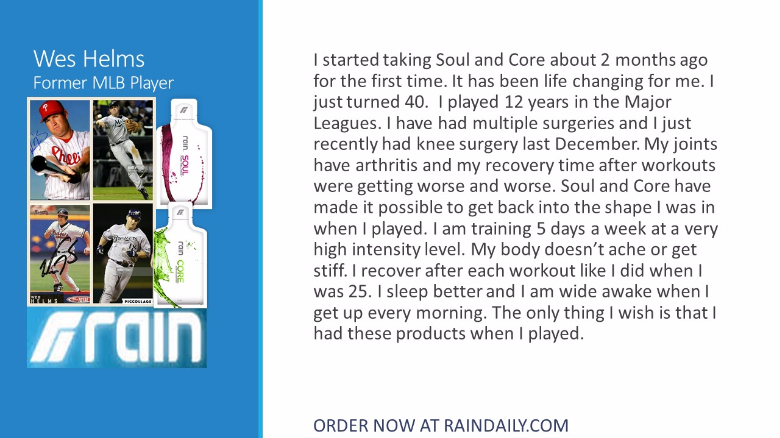Nestor Liquor Rye Whiskey
US Sports Radio affiliate partner

Athletes and Warriors!
Today's guest articles deals with something many of us adults have to address, particularly as we are coming off the "parteyying" of the Holiday season. I get more questions about alcohol consumption this time of year than I do ab workouts! Here are some more smart folks with some good guidelines to help you manage while having fun. -Nate The Bar Facts -- The Truth About Alcohol, Straight Up BY SUSAN QUICK The health risks for young women who drink are higher than they are for men. "It's OK to enjoy yourself and drink in moderation," says Meir Stampfer, M.D., professor of epidemiology and nutrition at the Harvard School of Public Health. "But young women shouldn't think it's going to be a health plus." Here, we answer some key questions about alcohol.  Q: Does a glass of wine a day protect against heart disease? A: Many studies suggest that moderate alcohol consumption (no more than one drink a day for women and no more than two drinks a day for men) helps prevent heart disease the leading cause of death among women. What's the catch? For women, risk of heart disease remains low until menopause (usually around age 50). So for premenopausal women, the protective value of a glass of wine is nil. Q: Does drinking make you fat? A: Alcohol is high in CALORIES. But moderate drinking is unlikely to have much of an effect on your weight. Conventional diet wisdom says that if you drink, you tend to eat more. But the true effect of alcohol on weight is controversial. In one large-scale study of female nurses, those who were moderate drinkers weighed less than women who abstained. Why? Dr. Stampfer, one of the study's authors, is reluctant to link alcohol consumption with leanness. Other research, he says, suggests moderate drinkers may be more active and therefore weigh less. Some other experts believe that much of the energy in alcohol is quickly burned off as heat and is therefore not stored by the body as FAT but so far this is only theory. Q: Can women not handle as much alcohol as men because of their smaller body size? A: Within minutes of drinking the same amount of alcohol as a man, a woman's blood alcohol level is much higher. But the difference is only partly due to a woman's smaller size. Another key factor: Alcohol dehydrogenase, the enzyme that starts to metabolize alcohol in the stomach, is less active in young women than in men, so more alcohol goes directly into a woman's bloodstream, and it gets there more quickly. This not only means you get drunker faster, it also means you're more vulnerable to the negative health effects of alcohol, such as alcohol-related liver damage. Q: Is breast cancer the biggest health risk for women who drink heavily? A: Studies suggest that heavy drinkers face increased breast cancer risk and that moderate drinkers may have a small increase in risk. But the greater and more immediate risks of drinking are impaired judgment and its consequences unprotected sex, car accidents or of harming a fetus by drinking during pregnancy. Q: How much drinking is OK? A: There is no one-size-fits-all advice. For some people it is unwise to drink at all for example, if you're pregnant or if alcohol-related problems run in your family (which may place you at risk for alcohol abuse). Otherwise, the levels believed to pose little or no health risk are no more than one drink per day for women and no more than two drinks a day for men. (A "drink" is 12 ounces of beer, five ounces of wine or one-and-a-half ounces of 80-proof liquor.) Don't panic if you occasionally split a carafe of wine with a friend. But don't make a habit of it. Adapted from Glamour,
Reach 6 Million New Customers Every Week With US Sports Marketing. Home Of The All-Biz Advertising Specials. Effective, Affordable Sports Marketing With Your Positive Bottom Line The Top Priority
Let's Boost Your Business Today! http://bit.ly/USSportsMarketing
US Sports Online Strength and Conditioning Powered By RAIN's SOUL!
 |
 Salt has often been deemed the 'bad guy' of meal planning. Although we especially in the west tend to abuse this nutrient, it is still an essential nutrient that if implemented into your meal plan properly; can be a major player in your healthy lifestyle. Salt has often been deemed the 'bad guy' of meal planning. Although we especially in the west tend to abuse this nutrient, it is still an essential nutrient that if implemented into your meal plan properly; can be a major player in your healthy lifestyle.-Nate Salt in your diet. Many people regard salt as just another item on the list of "bad foods" that should be avoided in our diet. They mistakenly believe that excessive salt, or sodium, intake will lead to high blood pressure, or hypertension. When people talk about salt in the diet they are usually referring to table salt or sodium chloride. In fact, sodium chloride is just one of many salts that are in our food. Chemically a food is described as a salt when it shares common chemical characteristics. We can recognize these chemicals on food labels when we see the tags --ide (as in chloride), --ate (as in borate) or --ite (as in sulfite). If you take a look at the labels on prepared foods you can understand why we don't need to add table salt to our diet. If we don't have a diet high in fresh foods there's a good chance we've already consumed far more salt than we need. Interestingly, research has shown that salt has little or no effect on most people with normal blood pressure as well as many people with hypertension. There are, however, many individuals who are salt sensitive. They react unfavorably to salt in any form because it puts strain on the kidneys, increasing blood volume. If the arteries are unable to dilate sufficiently to accommodate this increased blood volume, blood pressure will rise. Depending on who you ask, most health promotion educators recommend that adults limit sodium intake to 1000 milligrams per day--that's about one teaspoon. To reduce the amount of salt in your diet, minimize the amount of canned and processed foods, smoked meats, condiments, chips, and soft drinks you consume. Of course, it's always a good idea to discuss health concerns with your physician, but moderation seems to be the key in most dietary matters, including salt.
|

The super-antioxidant from the sea that can undo years of damage to your heart, brain, joints and nerves This astonishing healing discovery is up to 100 times more potent than blueberries, pomegranates, and even green tea catechins. What if I told you that one simple nutrient can improve your cholesterol, boost circulation, enhance memory and mental sharpness, and even help you sleep better? You'd probably be skeptical. I certainly was… But then I saw the research from Dr. Haengwoo Lee, a Korean biochemist now living near Seattle, Washington, and my jaw nearly dropped to the floor. Dr. Lee has made a startling discovery that few people, even many alternative health doctors, know about. He and his team have found an antioxidant that's up to 100 times stronger than the familiar antioxidants vitamins C and E, antioxidant-rich fruits like blueberries, pomegranates and even green tea catechins. What is this amazing "super-antioxidant"? |